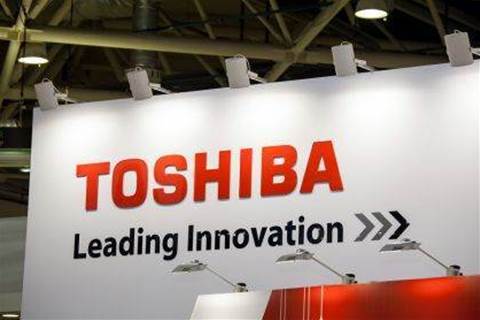Toshiba's financial woes have led it to admit "substantial doubt" over its ability to operate as a going concern.
The Japanese chipmaker took the unprecedented step of releasing its much-delayed third quarter financial results without the approval of its auditors, PriceWaterhouseCoopers, whose previous refusal to sign off has twice delayed the results' publication.
It is possible that Toshiba will now be delisted from the Tokyo Stock Exchange.
After restructuring its divisions to counteract growing losses, and seeing most of these divisions improve as a result, Toshiba was rocked by losses experienced by its nuclear power subsidiary, Westinghouse Electric, which has filed for bankruptcy.
Toshiba recorded an income loss for the first nine months (April to December 2016) of its latest financial year of ¥576 billion, or A$6.9 billion.
Its liquidity will be hit badly Westinghouse Electric's bankruptcy, and its losses are such that Toshiba may not be able to renew a Special Construction Building License with Japan's government when it expires in December 2017.
"There are material events and conditions that raise the substantial doubt about the Company's ability to continue as a going concern," Toshiba's financial statement reads.
To combat this, Toshiba is considering selling off a majority stake in Westinghouse Electric, as well as in its memory chip business, which actually saw a 16 percent return on sales in the nine-month results.
Its decision to spin off Toshiba Memory Corporation as a separate company means it can more speedily sell all or some of it, to generate money to pay its debts and rebuild capital. Foxconn is reportedly one potential buyer of the chip business.
A news conference is expected to take place today, a Toshiba spokesperson confirmed.







_(21).jpg&h=142&w=230&c=1&s=1)
.jpg&h=142&w=230&c=1&s=1)




.jpg&w=100&c=1&s=0)








_(1).jpg&q=95&h=298&w=480&c=1&s=1)


